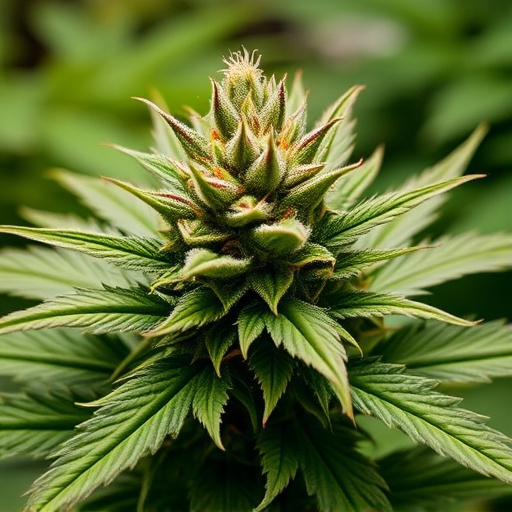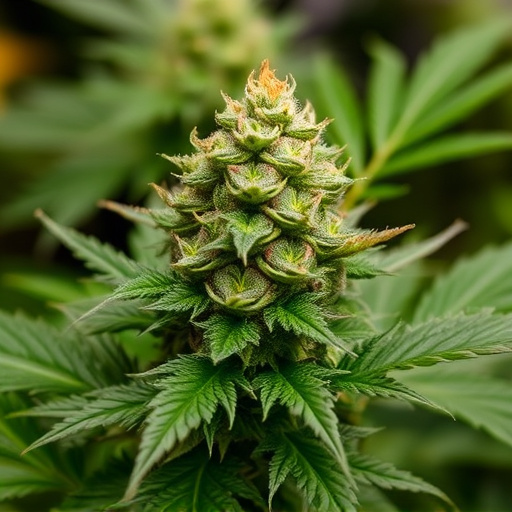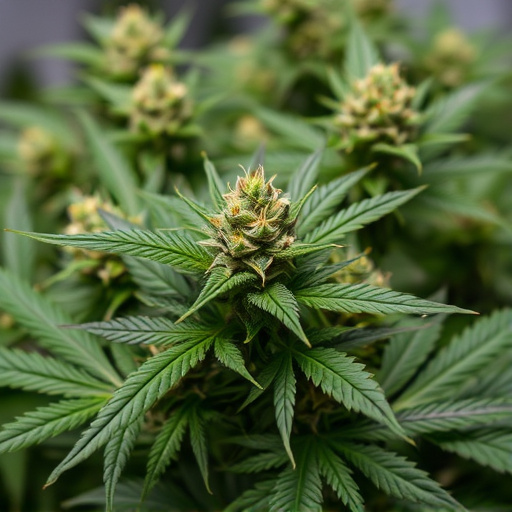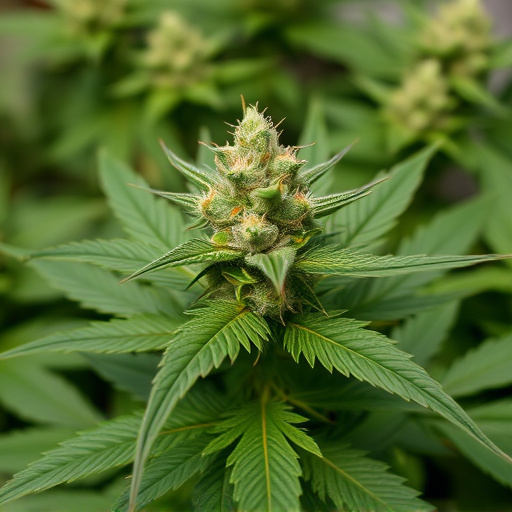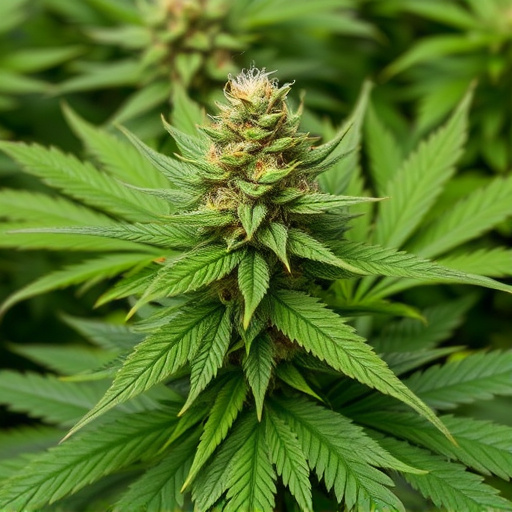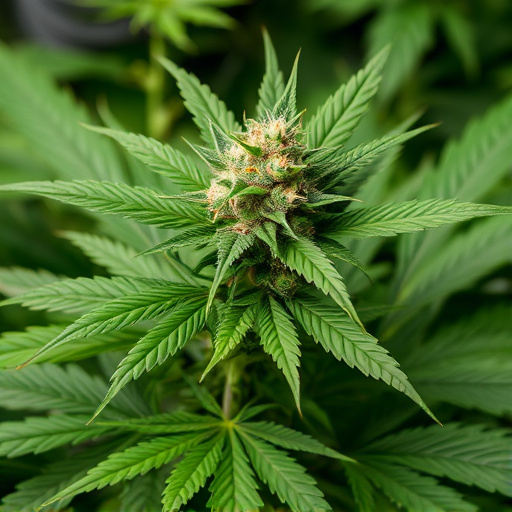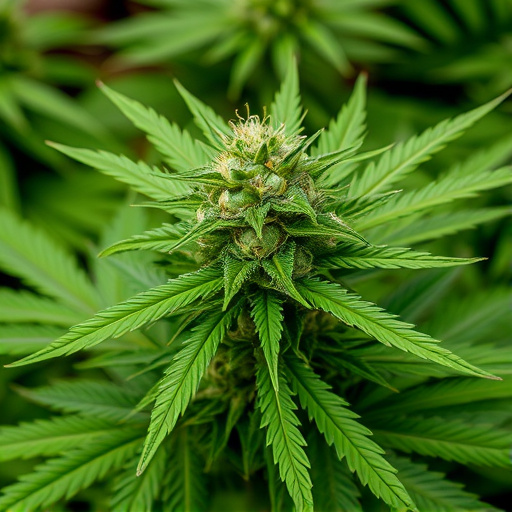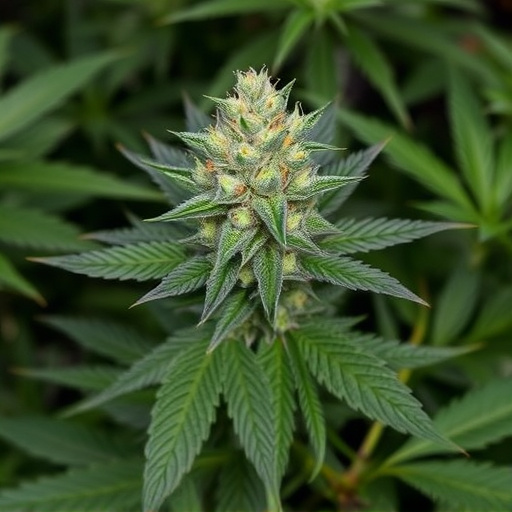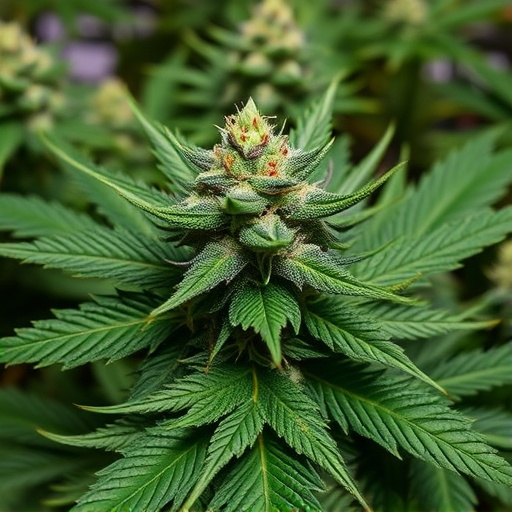Medical marihuana strains derived from hemp show potential in addressing mental health issues through interaction with the body's endocannabinoid system (ECS). Cannabinoids like THC and CBD regulate mood, memory, appetite, sleep, and pain. THC's psychoactive effects target serotonin receptors for anxiety and depression relief, while non-intoxicating CBD exhibits anti-inflammatory and anxiolytic properties. Specific strains with balanced THC and CBD levels offer therapeutic aids for mental health challenges. These strains, cultivated and tested for efficacy, interact with the ECS to manage conditions like depression, anxiety disorders, and chronic stress. Professional guidance ensures personalized treatments tailored to individual needs, though further research is needed to optimize strains and dosages for specific conditions.
“Unraveling the potential of Cannabis Flower as a tool for mental health management offers a promising avenue for those seeking alternative therapies. This article delves into the science behind Cannabis and its impact on mental well-being, exploring specific medical marihuana strains tailored to diverse conditions.
We examine the latest research, highlighting potential benefits while also considering side effects, to provide an insightful guide for understanding this controversial yet potentially game-changing approach. From anxiety and depression to PTSD, discover how different medical marihuana strains may offer relief, with a focus on future research directions.”
- Understanding Cannabis Flower and Mental Health: The Science Behind It
- Exploring Medical Marihuana Strains for Specific Mental Health Conditions
- Potential Benefits, Side Effects, and Future Research Directions
Understanding Cannabis Flower and Mental Health: The Science Behind It
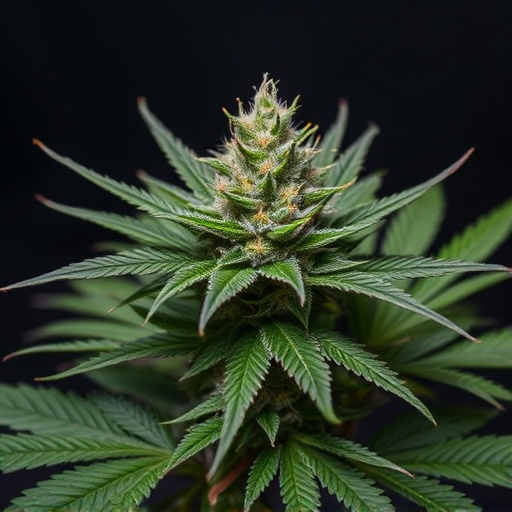
Cannabis flower, derived from the hemp plant, has been a subject of interest for its potential impact on mental health. The science behind this connection delves into the complex interplay between the plant’s chemical compounds and our bodies’ endocannabinoid system (ECS). This system is involved in regulating mood, memory, appetite, sleep, and pain perception.
Medical marihuana strains are known to contain various cannabinoids, such as THC and CBD, which interact with the ECS. THC, responsible for the plant’s psychoactive effects, can influence serotonin receptors in the brain, potentially offering relief for conditions like anxiety and depression. On the other hand, CBD is non-intoxicating and has gained attention for its anti-inflammatory and anxiolytic properties. Research suggests that specific medical marihuana strains with balanced THC and CBD levels may provide therapeutic benefits for individuals dealing with mental health challenges.
Exploring Medical Marihuana Strains for Specific Mental Health Conditions
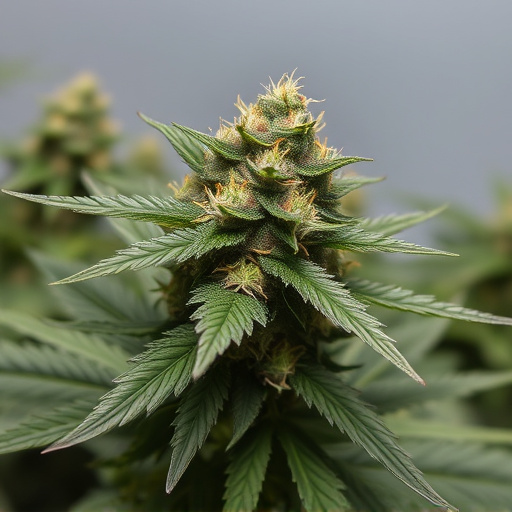
When it comes to exploring cannabis for mental health support, understanding specific medical marihuana strains can be a game-changer. Different strains offer unique chemical profiles, with varying levels of THC and CBD, among other cannabinoids. These differences translate into distinct potential therapeutic effects. For example, high CBD strains are often sought by individuals dealing with anxiety or PTSD due to their anti-anxiety properties. On the other hand, balanced THC-CBD ratios may provide relief for depression symptoms while maintaining cognitive function.
Medical marihuana strains have been specifically cultivated and tested for consistent efficacy, making them valuable tools in navigating mental health challenges. Research suggests that cannabis can interact with our endocannabinoid system, which plays a significant role in regulating mood, memory, and anxiety. As such, exploring different medical marihuana strains under professional guidance can lead to personalized treatments tailored for specific conditions like depression, anxiety disorders, or even chronic stress management.
Potential Benefits, Side Effects, and Future Research Directions
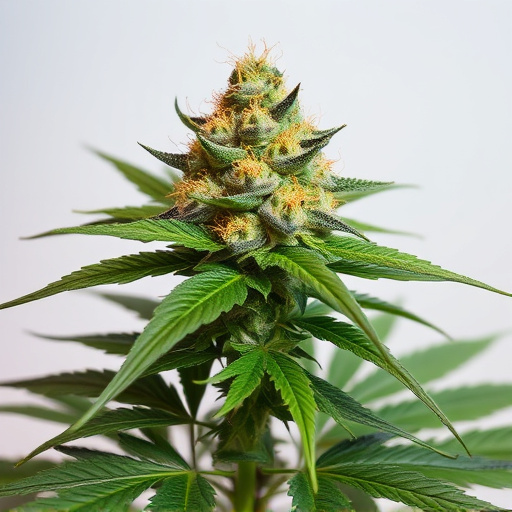
Cannabis flower, particularly specific medical marihuana strains, has garnered attention for its potential to improve mental health. Several studies suggest that compounds like THC and CBD may offer benefits in managing conditions such as anxiety, depression, and post-traumatic stress disorder (PTSD). The plant’s ability to interact with the endocannabinoid system in the brain could provide therapeutic effects, promoting relaxation, improving mood, and reducing symptoms associated with mental health disorders.
However, it’s crucial to acknowledge that cannabis is not a one-size-fits-all solution. Side effects are common, including increased anxiety, paranoia, and cognitive impairment, especially in those new to its use. The impact of cannabis on mental health can vary widely based on factors like strain composition, dosage, and individual tolerance or vulnerability. As such, further research is needed to identify specific strains and dosages most beneficial for different mental health conditions. Future studies should also explore personalized medicine approaches, considering genetic predispositions and comorbidities to ensure safe and effective use of cannabis in a clinical setting.
Cannabis flower, with its diverse compounds and varying strain profiles, holds promise in the field of mental health. While initial research is encouraging, especially regarding specific medical marihuana strains tailored to conditions like anxiety and depression, more comprehensive studies are needed to fully understand its effects. As the legal landscape evolves, continued exploration into cannabis’ therapeutic potential, including its interaction with different mental health profiles, will help establish evidence-based guidelines for safe and effective use of medical marihuana strains.


